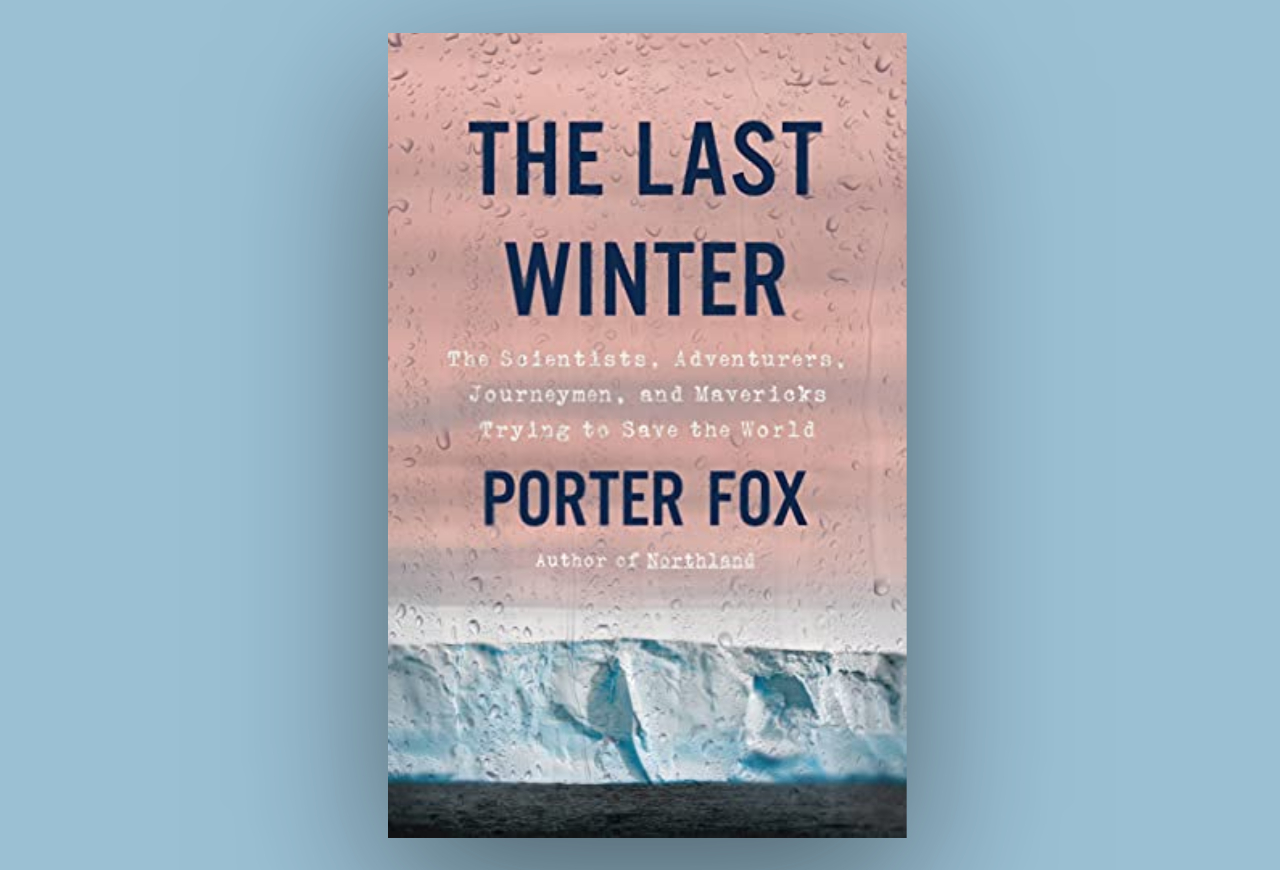A beautiful and entertaining eulogy to winter with a varied cast of characters or “adventurers”. Engaging enough for a summer reading but also a poignant reminder of the climate emergency

In brief
- This is a beautiful and entertaining eulogy to winter, with a varied cast of characters or “adventurers”. It is certainly engaging enough to take on your summer vacation.
- But the message is an important one. “The rate of climate change is spiralling out of control” and winter is in retreat.
- This ‘great melt’ has massive implications. From forest fires and droughts to rising sea levels.
The New York journalist Porter Fox has written a beautiful eulogy to winter. He spent a lot of his early life on skis whether in the US or Europe, and whilst he assures us he “will not spend the valuable space eulogising my personal affinity for blizzards, mountains, and the chilling cold”, he actually does just that. And it’s all the more interesting for it.
But Fox has a higher purpose. “This is a book about how winter, snow, and ice shaped our world and even us – and how it’s coming end will change everything again, in every season,” he writes.
He makes in depth journeys to chronicle the lives and opinions of a colourful cast of characters living on the edge of the Northern hemisphere’s snowline, whether in Alaska, Greenland or the Alps. They are not dry scientists but futurologists, with a good sprinkling of what he calls “adventurers, vagabonds [and] time travellers”.
They are a very amusing bunch who require a sign reading “No couplin” hung in their mess room, and on finding a stash of 100-year old whisky beneath the ice, they throw a party. One scientist is compared to Indiana Jones and one can believe it.
But their testimony is very valid, and their glimpse into the future truly frightening.
The evidence of a great melt is mounting up. “The first 100 degree Fahrenheit [38C] day in the Arctic Circle was recently recorded in the Siberian town of Verkhoyansk.” And “Svalbard, the world’s northernmost inhabited settlement, saw multiple days of 60 and 70 degree [16 and 21C] weather in 2020.”
Overall, since the 1970s, the rate of winter warming in the West has tripled, replacing snow with rain and reducing western snowpacks by 20 to 50%, the book says.
More importantly, as with many frightening scenarios in the realm of climate change, the situation appears to be “spiralling out of control”. The length of winter is projected to decline across the United States and some other locations by more than 50% by 2050, the author writes.
This has major implications. “In the Alps many of the high peaks are held together by permafrost – ice crystals that bind loose rock. As the permafrost thaws, entire mountainsides are falling apart.”
When glaciers melt, their store of water runs into the oceans. Worrying when we are told “just seventy-eight glaciated water towers around the world provide freshwater for two billion people downstream – from Peru to China to the Rockies and the Alps”.
To assemble evidence of the ‘great melt’ Fox tracks down Jon Riedel, the founder of the Glacier Monitoring Program who tells us: “One of the most shocking things you see are lakes now, where they used to be glaciers.” Every glaciers he monitors, we learn, is now travelling backwards.
As Fox tells us a sudden melt would also “kick off a long line of natural disasters and internal feedbacks, including a greater spike in forest fires which in turn would release more carbon”.
One of his “adventurers”, Kim Maltais from Washington state, testifies to the horror of watching one, describing how “in 15 minutes it [had] all gone – a lifetime of memories in the only home… he had ever lived in”.
Fox then tells us that since the 1980s, the average magnitude of wildfires in the United States has doubled. In western states alone, more than two million acres burned in large fires between 2002 and 2012.
Fox foretells that half of the Earth’s population will experience three weeks of “lethal heat” while rising sea levels will mean that cities like New York and Shanghai cease to exist.
I raise an eyebrow at some of these generalisations, and would like a little more factual back up. For example when Fox says “everyone living in head water regions of the Rocky Mountains could expect a 3 to 700% rise in burn area”. That’s rather an imprecise range, right?
Is it really true that because of the effect of glaciers on gravity people in the Hudson Bay region of Canada “weigh slightly less than they would elsewhere?” How exactly does he know “ten times the weight of the planet has fallen as snow over earth’s history” or that mallard ducks failing to fly to Russia in 1918 increased the spread of Spanish flu in Western Europe?
Nevertheless, this is an immensely entertaining book well written and very effective. I felt myself shivering in the middle of a heatwave. Or was that trembling?
“Without winters as our buttress against the power of the Sun, many more thresholds are about to be crossed, unleashing untold natural disasters. Not in the centuries to come, not even at the end of this century, but right now.”





